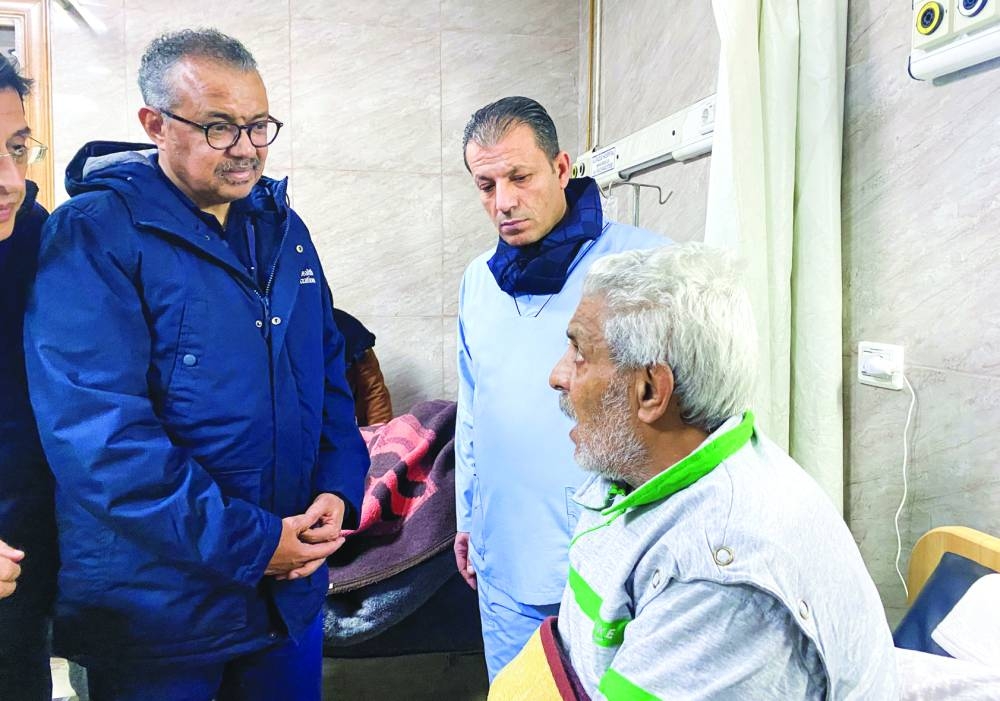World Health Organisation chief Tedros Adhanom Ghebreyesus arrived on Saturday in Syria’s quake-stricken city of Aleppo, state media reported.
Tedros “arrived at Aleppo airport to tour some hospitals and shelters with (Syria’s) health minister and the governor of Aleppo”, the official news agency SANA said.
His visit came five days after a devastating 7.8-magnitude earthquake rocked Turkiye and Syria, killing more than 24,000 people including at least 3,553 in war-torn Syria alone.
Upon his arrival, Tedros said he was accompanying “emergency medical supplies of around 37 metric tonnes”.
“We are very happy that we could come with the supplies,” he told reporters at Aleppo airport. “This is the first supply we are sending.”
He added that the WHO would continue to provide emergency medical services and bring in more emergency supplies necessary for “trauma management”.
“Tomorrow, there will be another round with more than 30 metric tonnes,” he said.
He expressed concern over the after-effects of the earthquake, especially the disruption of services. “People are exposed to diarrhoeal diseases...and other health problems especially mental health problems,” he said.
“We will work together to address the impact of the earthquake, not only the emergency services during the earthquake.”
Syria’s Health Minister Hassan al-Ghabash welcomed Tedros at the airport, saying his visit was “of great importance in many aspects”.
“He will first see the reality and what this disaster caused,” he said. “We hope that Dr Tedros sees the reality of hospitals and what they lack,” he added, calling on the WHO to help provide equipment which is lacking. Since Monday’s earthquake, rescuers and volunteers have been scrambling with little means to find survivors under concrete debris of collapsed buildings. The United Nations says the disaster may have left up to 5.3mn people homeless in Syria, including 200,000 people in Aleppo alone. Quake survivors have flocked to camps set up for people displaced by nearly 12 years of war from other parts of Syria.
Many lost their homes or are too scared to return to damaged buildings. Syria’s health care system has been ravaged by years of conflict.

Dr Tedros Adhanom Ghebreyesus, the head of the World Health Organisation (WHO), speaks with a man as he visits quake survivors at a hospital in Aleppo, in the aftermath of the earthquake, in Syria, on Saturday.
